Hokuriku: A Region Shaped by Nature, Culture, and Timeless Craftsmanship
Hokuriku, located on Japan’s western coast, encompasses the prefectures of Ishikawa, Fukui, and Toyama. Known for its rugged natural beauty, the region is defined by the dynamic Sea of Japan, heavy winter snowfall, and mountains that shape both daily life and culture. Despite the unique climate and terrain, Hokuriku locals have developed a deep connection with nature, adapting to its rhythms and making the most of its resources.
Visitors to Hokuriku can explore various attractions that reflect the region’s natural and cultural richness. In Ishikawa, Kanazawa’s Kenrokuen is one of Japan’s most celebrated gardens, known for its stunning seasonal beauty. The Tateyama Kurobe Alpine Route in Toyama offers breathtaking views, such as the Murodo snow corridor and mountainous Northern Alps, while Fukui is home to the beautiful Eiheiji Temple, a prominent Soto Zen Buddhist site that offers a serene retreat into history and spirituality. These attractions provide a glimpse into the region’s harmony with nature, where visitors can experience both its tranquil landscapes and its historical depth.
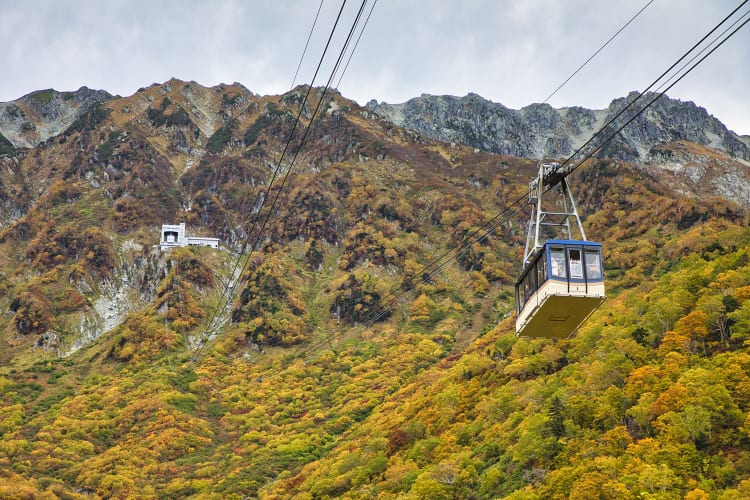
Tateyama Kurobe Alpine Route
The region’s culinary heritage also reflects harmony with nature, with seafood from the Sea of Japan and pure mountain water from Mt. Haku and Mt. Tate providing the foundation for local dishes. Visitors can savor regional specialties like Fukui’s Echizen crab, Kaga vegetables from Ishikawa, and Toyama’s white shrimp (Shiroebi), all celebrated for their freshness. Hokuriku’s farming and fishing communities have a deep understanding of the land and sea, and this wisdom permeates the region’s cuisine.
Hokuriku is also renowned for its craftsmanship, a legacy shaped by samurai culture and refined over centuries. Artisans continue to create masterpieces in fields like silk dyeing, pottery, and metal works, though these are only a glimpse of the many diverse and intricate crafts that continue to thrive here. The spiritual traditions of Jodo Shinshu Buddhism and Soto Zen further nurture Hokuriku’s aesthetic sense, emphasizing a harmonious relationship with nature and a deep connection to the present moment.
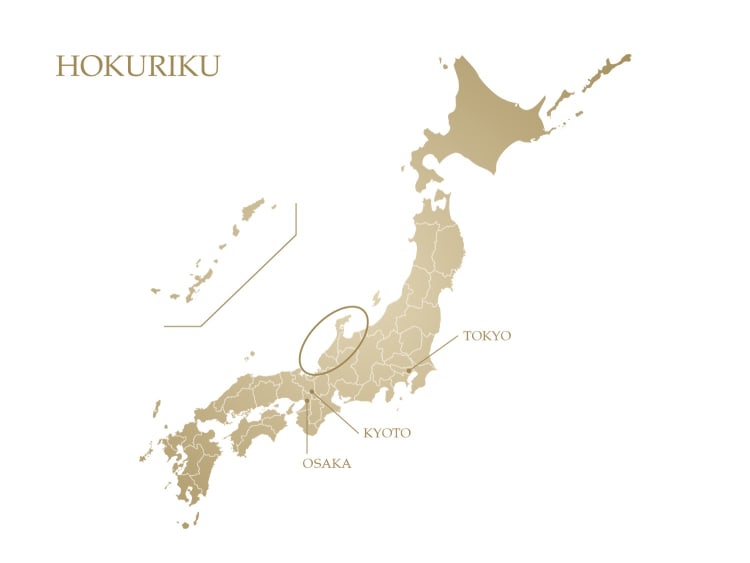
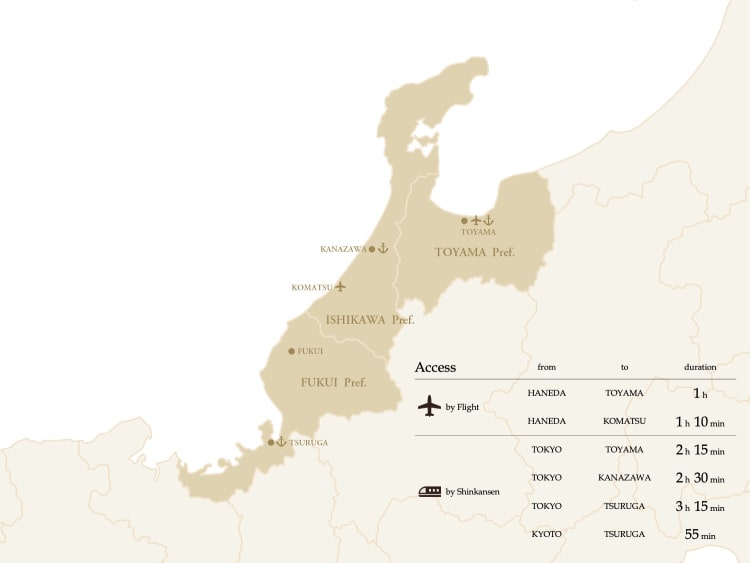
Samurai Culture, Artisanal Crafts, and Gastronomic Experiences in Hokuriku
In Hokuriku, ancient traditions are preserved while evolving with modern values, creating a dynamic cultural landscape.
Ishikawa Prefecture is deeply connected to samurai culture, particularly through its historical ties to the Kaga Domain, one of the most powerful feudal regions in Japan during the Edo period. The center of the Kaga Domain was modern-day Kanazawa, Ishikawa’s capital city, and many traditional practices including martial arts have been preserved here. One way visitors can experience this is through aikido, a Japanese martial art focused on harmony rather than conflict. Courses are available where participants learn everything from the traditional standing bow as a mark of respect, through to proper posture and how to handle a bokken, a wooden substitute for a traditional sword.
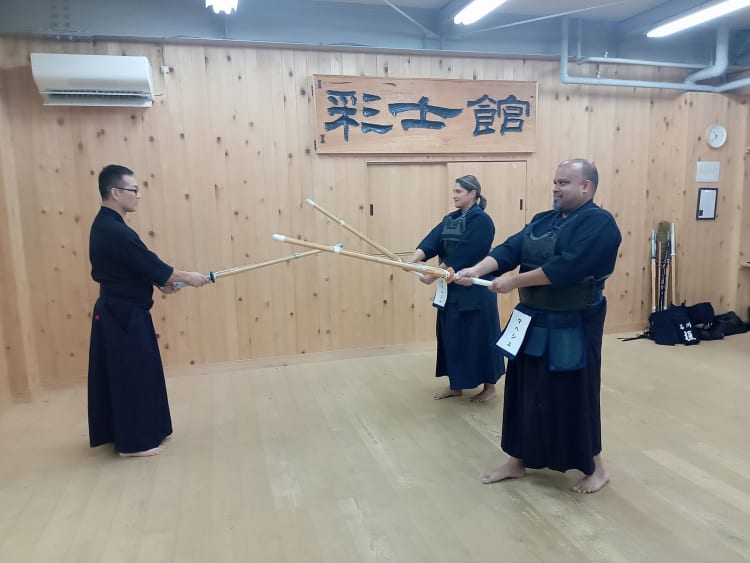
Similarly, Hokuriku is a haven for traditional crafts which date back centuries and continue to thrive today through workshops and exhibitions. For those wishing to explore the region’s artisanal heritage first-hand, head to Fukui to learn more about Echizen’s uchihamono (forged knives). At Takefu Knife Village, visitors can take part in factory tours or classes that delve into the intricate processes of blade making. Under the guidance of skilled craftsmen, participants can forge their own knives or create unique souvenirs like key chains, making for an unforgettable experience that beautifully ties craftsmanship, culture, and history together. Craft Tourism Hokuriku’s website by Echizenshi Travel And Tourism Association introduces Echizen’s uchihamono, Kinzangama Kiln (Kutani ware), and Inami Sculpture, and Echizen washi (traditional handmade paper) as part of a regional craft experience.
Numerous high-quality food experiences can also be found in the Hokuriku region, such as Toyama’s L’évo. A truly off-the-beaten-path experience, this fine dining restaurant has earned widespread acclaim for its innovative French cuisine. Carefully selected local vegetables, game meat, and other regional specialties are transformed into unique, sensory-driven dishes, and the plates, cutlery, and even tables here are all custom-made. Beautifully tying the culinary experience to Toyama's deep-rooted traditions of craftsmanship, L’évo reflects the region’s commitment to excellence in both food and artistry.
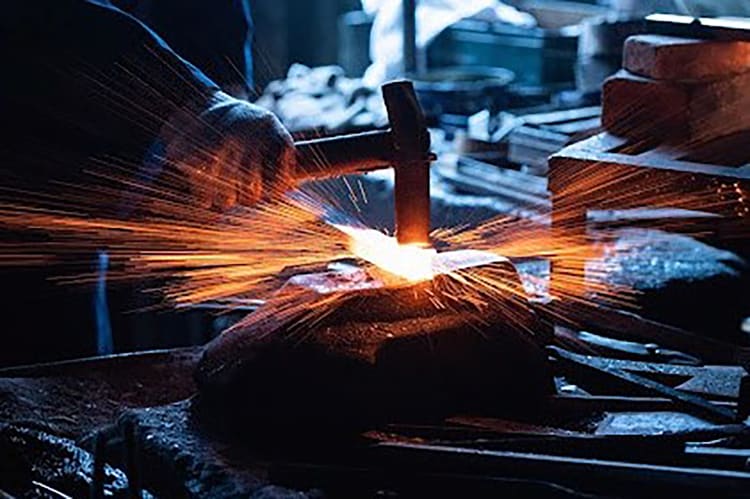
Echizen’s uchihamono
Hokuriku Retreats: Embracing Luxury, Craftsmanship, and Local Cuisine
Hokuriku’s accommodations beautifully capture the essence of the region's rich food culture and artistic traditions, offering visitors a deep connection to its unique heritage.
Rakudo-An, an art hotel in Toyama, invites guests to experience the local spirit of dotoku—the harmonious relationship between people and nature. This exclusive inn, which opened in 2022, occupies a renovated 200-year-old traditional house and offers a quiet, personalized stay with only three rooms for up to six guests. The inn seamlessly blends traditional materials like wood, washi paper, and silk with its natural surroundings of rice paddies, creating a deep connection with the environment.
Guests can also enjoy activities that showcase the charm and challenges of village life, such as guided tours or hands-on cultural experiences. From taiko drumming classes to somen noodle-making courses, there are plenty of opportunities to immerse oneself in local traditions. Rakudo-An also features a restaurant serving dishes made from fresh, local ingredients sourced from Toyama’s seas, mountains, and countryside, while its boutique offers unique folk arts, crafts, and gourmet products for purchase.
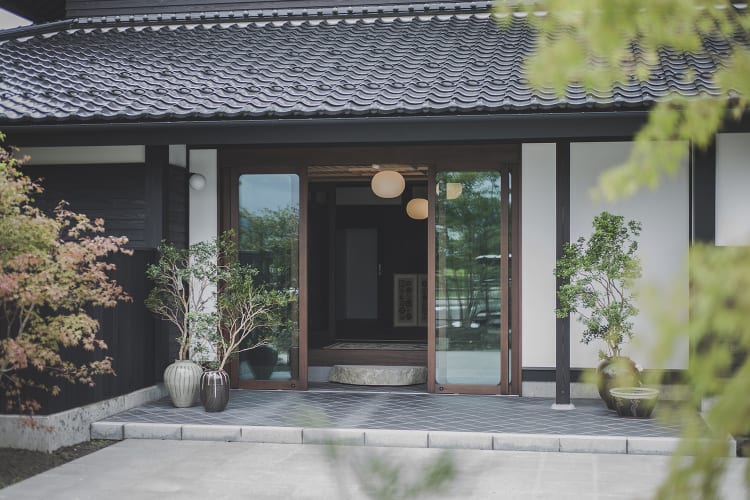
Rakudo-An Entrance
For travelers seeking an unparalleled escape, Beniya Mukayu in Kaga, Ishikawa, offers an experience that transcends the ordinary. Inspired by the philosophy of Zhuangzi, a renowned Chinese philosopher, this ryokan (Japanese inn) embodies the concept of “richness in emptiness.” This philosophy suggests that true value lies in simplicity, tranquility, and the acceptance of life as it unfolds. The inn embraces these principles, offering guests an environment where the unnecessary is set aside, allowing the essence of nature and peace to fill the space.
The exclusive retreat offers 16 spacious rooms, each facing a Forest Garden and boasting a private, open-air hot spring bath. The room’s expansive windows all over the ryokan invite nature inside, creating a seamless connection with the outdoors.
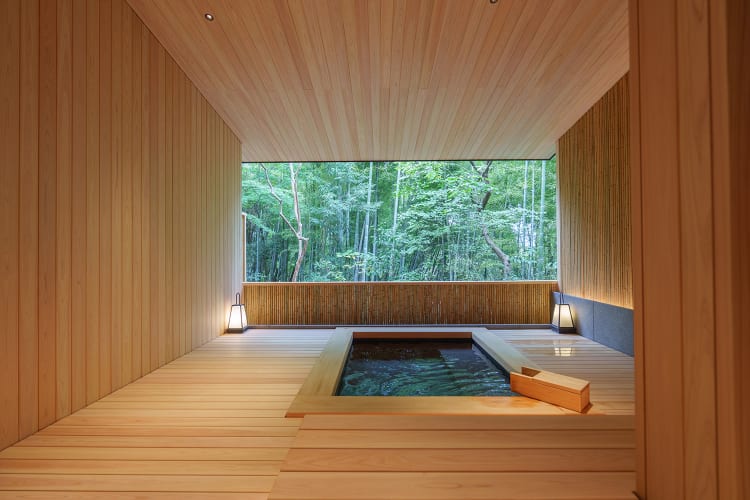
USUKŌ - one of the two onsen hot spring communal bath at Beniya Mukayu
Hokuriku Products: Where Classic Crafts Meet Modern Innovation
Hokuriku is renowned for its rich tradition of craftsmanship, encompassing a diverse range of art forms such as lacquerware, ceramics, paper, cutlery, and metal works. Each craft showcases a unique aspect of the region’s cultural heritage, with artisans continuously refining their techniques to balance traditional methods with contemporary tastes.
Takaoka City’s Yotsukawa Seisakusho exemplifies this, specializing in Takaoka copperware, a tradition with over 400 years of history. The company offers three distinct collections: “Kisendo,” which preserves the classic copperware tradition with items like incense burners and vases; “Kisen,” which modernizes the craft with refined tableware and home decor; and “Kuon,” which focuses on creating decorative pieces that inspire healing and reflection.
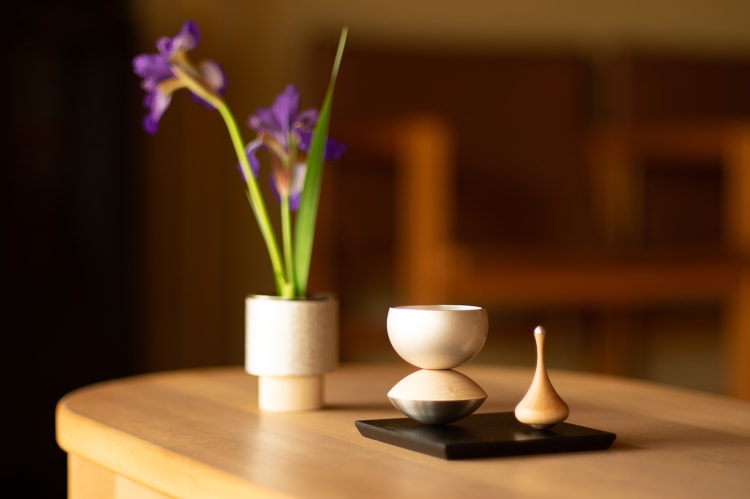
Kuon
Likewise, Echizen ware from Fukui Prefecture is celebrated for its simple beauty and durability, making it perfect for both everyday use and artistic expression. As one of Japan’s Six Ancient Kilns, it has a history dating back to the late Heian period (794–1185), and the region’s high iron content clay gives this style of pottery its distinct dark red surface. Visitors can explore the history of the craft at the Echizen Old Kiln Museum, and for a more immersive experience, the Echizen Pottery Village offers hands-on workshops where artisans guide visitors in creating their own pieces.
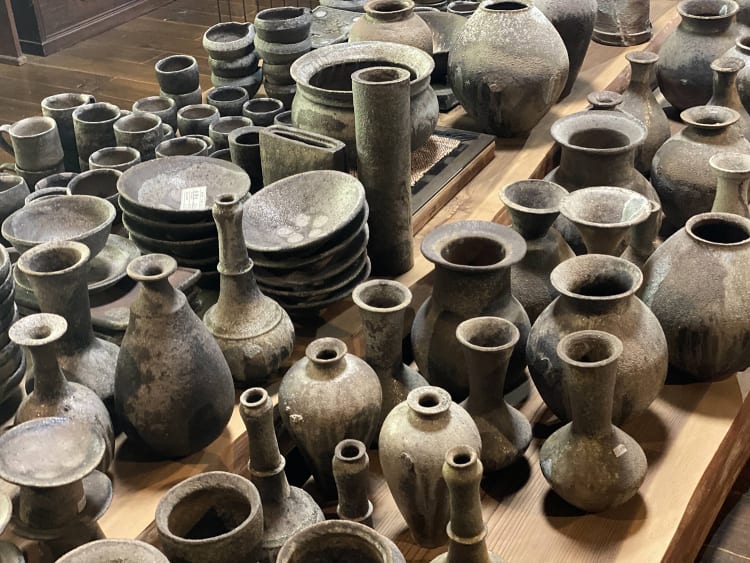
Echizen pottery

